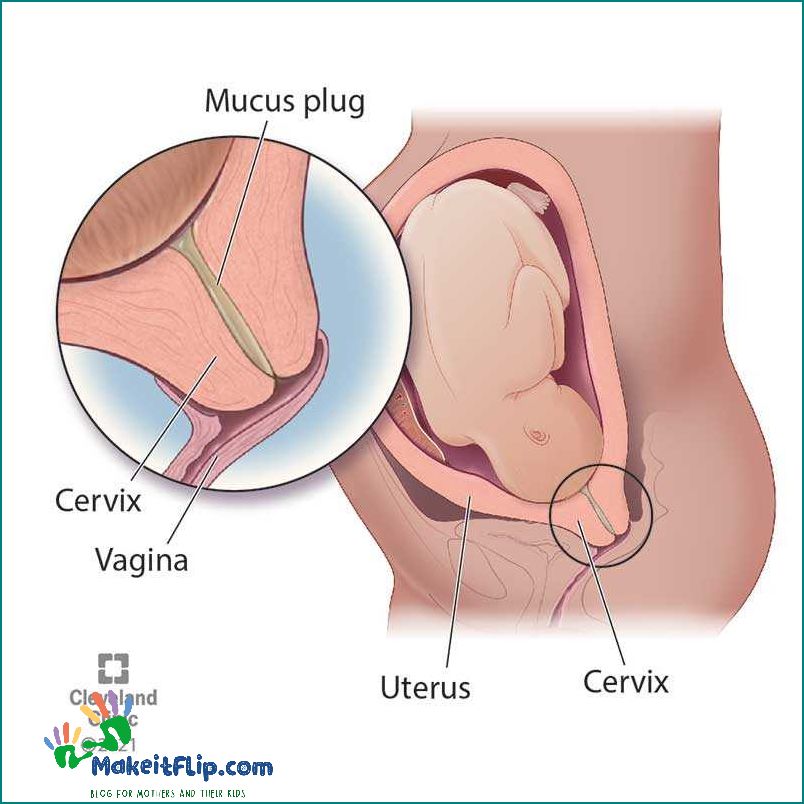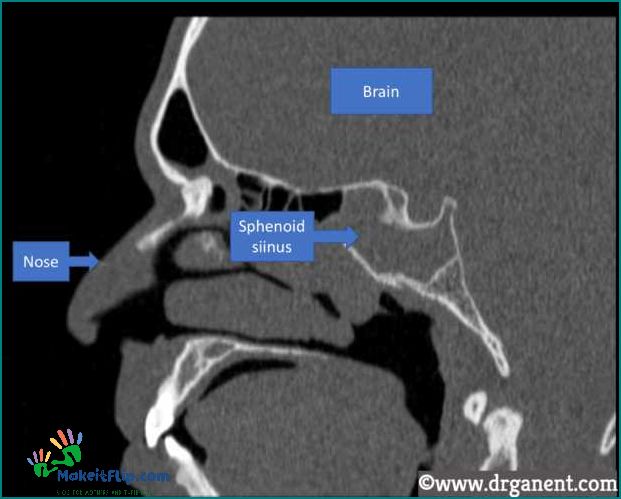Contents
Exploring the Causes and Remedies for Hard Nasal Mucus: A Comprehensive Guide to Understanding Mucus Plug Formation

A mucus plug is a thick, gelatinous substance that forms in the nasal passages. It is made up of mucus, a sticky fluid produced by the body to protect and lubricate the nasal passages. When the mucus becomes thick and hard, it can cause discomfort and difficulty breathing.
There are several causes for the formation of a mucus plug. One common cause is dry air, which can dry out the mucus and make it harder. Another cause is allergies, which can cause the body to produce excess mucus. Infections, such as sinusitis or the common cold, can also lead to the formation of a mucus plug.
Fortunately, there are several solutions for dealing with hard nasal mucus. One option is to use a saline nasal spray or rinse to help moisturize the nasal passages and loosen the mucus. Another solution is to use a humidifier to add moisture to the air and prevent the mucus from drying out. Drinking plenty of fluids can also help thin the mucus and make it easier to expel.
In conclusion, understanding the causes and solutions for hard nasal mucus can help alleviate discomfort and improve breathing. By keeping the nasal passages moisturized and addressing any underlying causes, individuals can find relief from the symptoms of a mucus plug.
Causes of Mucus Plug

The formation of a mucus plug in the nasal passages can be caused by various factors. The presence of excessive mucus production is the primary cause of mucus plug formation. This can occur due to several reasons, including:
Allergies: Allergic reactions to substances such as pollen, dust mites, pet dander, or certain foods can trigger an overproduction of mucus in the nasal passages, leading to the formation of a mucus plug.
Infections: Viral or bacterial infections, such as the common cold or sinusitis, can cause inflammation and an increase in mucus production. This excess mucus can accumulate and form a mucus plug.
Environmental factors: Exposure to dry air, low humidity, or irritants like smoke or pollutants can dry out the nasal passages, causing the mucus to become thick and sticky. This can lead to the formation of a mucus plug.
Dehydration: Inadequate hydration can result in the thickening of mucus, making it more likely to form a plug in the nasal passages.
Medical conditions: Certain medical conditions, such as cystic fibrosis or chronic sinusitis, can cause an abnormal production of mucus, increasing the risk of mucus plug formation.
Medications: Some medications, such as antihistamines or decongestants, can dry out the nasal passages and contribute to the formation of a mucus plug.
In conclusion, a mucus plug in the nasal passages can be caused by various factors, including allergies, infections, environmental factors, dehydration, medical conditions, and certain medications. Understanding the underlying cause can help in finding appropriate solutions to prevent or alleviate the formation of mucus plugs.
Respiratory Infections

Respiratory infections can often lead to the production of excess mucus in the nasal passages. When these infections occur, the body’s immune system responds by producing mucus to help trap and remove any harmful pathogens or irritants. However, in some cases, this mucus can become hard and difficult to expel.
Hard nasal mucus can be a result of various respiratory infections, such as the common cold, sinusitis, or bronchitis. These infections can cause inflammation in the nasal passages, leading to an overproduction of mucus. When this mucus becomes thick and sticky, it can block the nasal passages, making it harder to breathe and causing discomfort.
It is important to address respiratory infections promptly to prevent the buildup of hard mucus. Drinking plenty of fluids, using saline nasal sprays, and using a humidifier can help thin out the mucus and make it easier to expel. In some cases, over-the-counter decongestants or nasal corticosteroids may be recommended to reduce inflammation and promote mucus drainage.
If respiratory infections persist or worsen, it is important to seek medical attention. A healthcare professional can provide a proper diagnosis and recommend appropriate treatment options, such as antibiotics for bacterial infections. They may also suggest lifestyle changes, such as quitting smoking or avoiding irritants, to help prevent future infections and reduce the production of hard mucus.
Overall, respiratory infections can contribute to the formation of hard nasal mucus. Understanding the causes and seeking appropriate treatment can help alleviate symptoms and promote better respiratory health.
Allergies and Irritants

Allergies and irritants can play a significant role in the production of mucus in the nasal passages. When the body is exposed to allergens or irritants, such as pollen, dust, pet dander, or smoke, it triggers an immune response. This immune response can lead to the production of excess mucus, resulting in a mucus plug.
The mucus plug serves as a protective barrier, trapping foreign particles and preventing them from entering the respiratory system. However, when the mucus becomes thick and hard, it can cause discomfort and difficulty in breathing.
Common symptoms of allergies and irritants include nasal congestion, sneezing, itching, and a runny nose. These symptoms can be managed by avoiding exposure to the allergens or irritants, using nasal saline rinses to flush out the nasal passages, and taking over-the-counter antihistamines to reduce the body’s allergic response.
In some cases, a healthcare professional may recommend prescription medications, such as nasal corticosteroids or allergy shots, to help manage allergies and reduce mucus production. It is important to consult with a healthcare provider to determine the best course of treatment for individual symptoms and circumstances.
Remember: Identifying and avoiding allergens and irritants can help prevent the formation of a mucus plug and alleviate nasal congestion. If symptoms persist or worsen, it is recommended to seek medical advice for further evaluation and treatment.
Dry Air and Dehydration

Dry air and dehydration can contribute to the formation of hard mucus plugs. When the air is dry, it can cause the mucus in your nasal passages to become thick and sticky. This can lead to the formation of mucus plugs, which can make it difficult to breathe and cause discomfort.
Dehydration can also play a role in the development of hard mucus plugs. When you are dehydrated, your body may produce less mucus, leading to a thicker consistency. This can make it harder for the mucus to flow freely, increasing the chances of mucus plugs forming.
To help prevent the formation of hard mucus plugs caused by dry air and dehydration, it is important to stay hydrated by drinking plenty of water throughout the day. You can also use a humidifier to add moisture to the air in your home, especially during dry winter months or in arid climates.
If you are experiencing symptoms of a mucus plug, such as difficulty breathing or a persistent cough, it is important to consult with a healthcare professional. They can provide a proper diagnosis and recommend appropriate treatment options to help alleviate your symptoms and prevent future mucus plug formation.
FAQ about topic Understanding Mucus Plug Causes and Solutions for Hard Nasal Mucus
What causes a mucus plug in the nose?
A mucus plug in the nose can be caused by a variety of factors, including allergies, colds, sinus infections, dry air, and irritants such as smoke or pollution. These factors can lead to the production of excess mucus, which can then become thick and hard, forming a mucus plug.
How can I prevent the formation of a mucus plug?
To prevent the formation of a mucus plug, it is important to keep the nasal passages moisturized. This can be done by using a saline nasal spray or a humidifier to add moisture to the air. Avoiding irritants such as smoke or pollution and staying hydrated can also help prevent the formation of a mucus plug.
What are the symptoms of a mucus plug in the nose?
The symptoms of a mucus plug in the nose can include difficulty breathing through the nose, a feeling of congestion or blockage, and a thick, sticky discharge from the nose. Some people may also experience headaches or sinus pain.
How can I get rid of a mucus plug in the nose?
There are several ways to get rid of a mucus plug in the nose. One method is to use a saline nasal spray or rinse to help loosen and thin the mucus. Steam inhalation can also be helpful in loosening the mucus. Drinking plenty of fluids and using a humidifier can help keep the nasal passages moist and prevent the mucus from becoming thick and hard.
When should I see a doctor for a mucus plug in the nose?
If you are experiencing severe symptoms such as difficulty breathing, persistent headaches, or a high fever, it is important to see a doctor. Additionally, if the mucus plug does not improve with at-home remedies or if it keeps recurring, it may be a good idea to seek medical attention.
I’m Diana Ricciardi, the author behind Makeitflip.com. My blog is a dedicated space for mothers and their kids, where I share valuable insights, tips, and information to make parenting a bit easier and more enjoyable.
From finding the best booster seat high chair for your child, understanding the connection between sciatica and hip pain, to exploring the benefits of pooping in relieving acid reflux, I cover a range of topics that are essential for every parent.
My goal is to provide you with practical advice and solutions that you can easily incorporate into your daily life, ensuring that you and your child have the best possible experience during these precious years.
